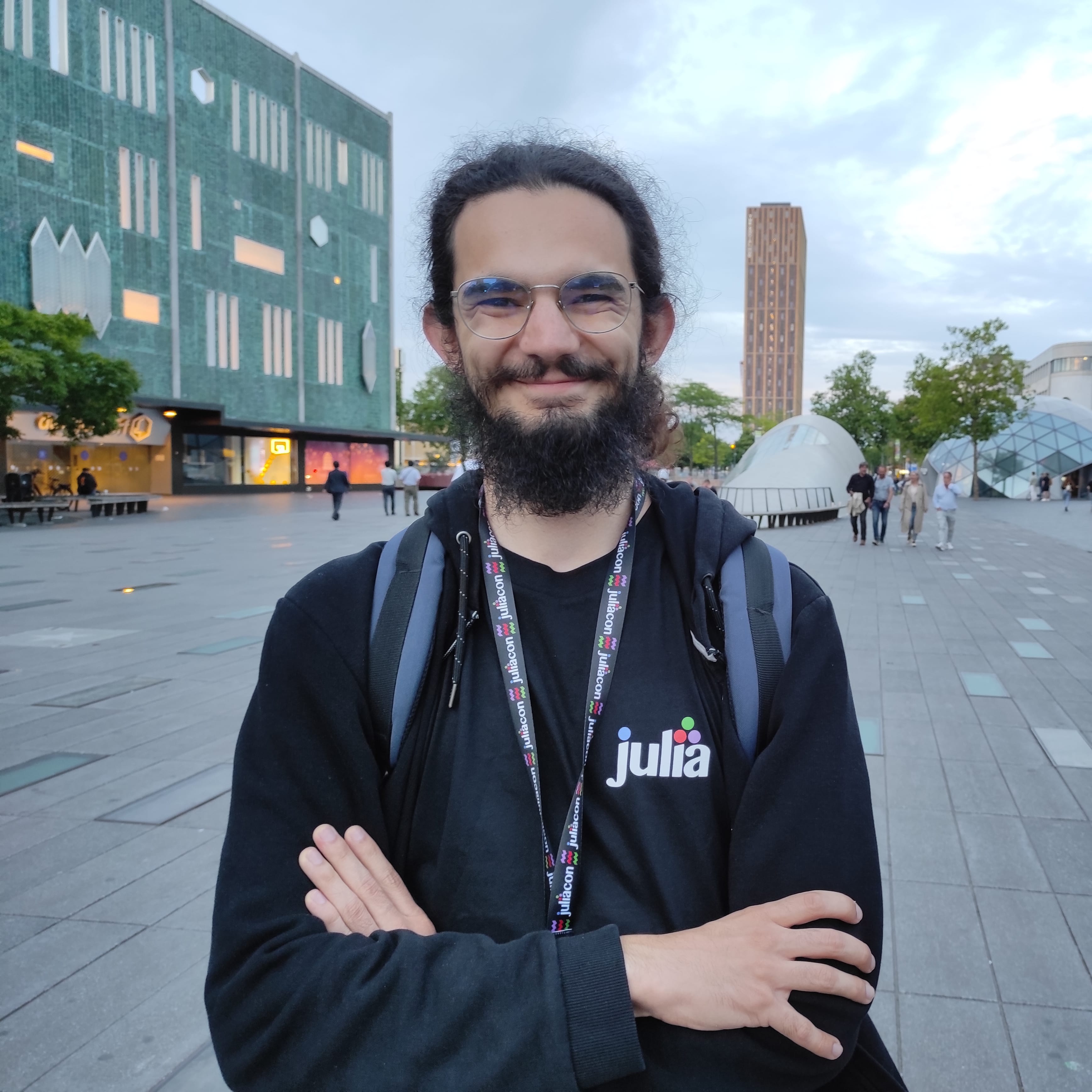Talks and presentations
See a map of all the places I've given a talk!
November 06, 2025
Conference talk, Australasian Association for Logic Conference 2025, University of Queensland, Brisbane, Queensland, Australia
We aim to introduce a possible many-valued extension for well-known temporal and spatial logics based on the family of finite FLew-algebras, allowing for a unified treatment of both fuzzy logics and Heyting algebras, leveraging the notion of a many-valued linear order and allowing for the definition of a many-valued semantics of modal frames. This framework is also implemented as part of an open-source framework for representing, reasoning, and learning from structured and unstructured data, namely Sole.jl, serving as the foundation for reasoning and learning tools leveraging many-valued temporal and spatial logics.
Download Slides
October 02, 2025
Conference talk, JuliaCon Local Paris 2025, Conservatoire national des arts et métiers, Paris, France
In this presentation, we will have a look at how Sole.jl works through a hands-on tutorial, emphatizing on its comprehensiveness and user-friendliness. This will also allow us to introduce two newcomers to the SOLE ecosystem: ModalAssociationRules.jl, a package for mining association rules between instances, and SolePostHoc.jl, a package to extract, interpret and simplify sets of rules starting from a symbolic model.
Download Slides | Check it on Youtube
August 04, 2025
Poster session, 36th European Summer School in Logic, Language and Information, Ruhr University Bochum, Bochum, Germany
Reasoning tasks over modal logics are notoriously difficult, comprising problems which are often semi-decidable. Hence, it is not rare for applications leveraging such tasks to exploit heuristic approaches able to give results in an acceptable amount of time, at the cost of some inaccuracies. Some approaches may benefit from vector embeddings, allowing for instance to involve neural networks and machine learning models in the reasoning process. This work aims at providing a new way to provide such embeddings specifically for the modal case, allowing for faster reasoning through both mathematical and learning techniques.
Download Poster
July 21, 2025
Conference talk, Logic, Algebra, and Truth Degrees (LATD 2025), Siena, Italy
In this work, we provide an accessible and open-source algorithmic tool for (i) defining finite FLew-algebras, (ii) writing formulas in a specified FLew-algebra, and (iii) asking alpha-satisfiability and alpha-validity for a given value alpha in the algebra of the formula through a first-order translation and making use of a sat or a smt solver, such as z3.
Download Slides
November 28, 2024
Conference talk, Australasian Association for Logic Conference 2024, University of Sydney, Sydney, New South Wales, Australia
In this work, we introduce a tableau system for Many-Valued Halpern and Shoham’s interval temporal logic over some finite FLew -algebra.
Download Slides | Check it on Youtube
October 22, 2024
Workshop talk, Brisbane Logic Workshop, University of Queensland, Brisbane, Queensland, Australia
Taking inspiration from the literature fuzzy decision trees, and leveraging many-valued logics, we propose a novel, and more general variety of decision trees.
Download Slides
